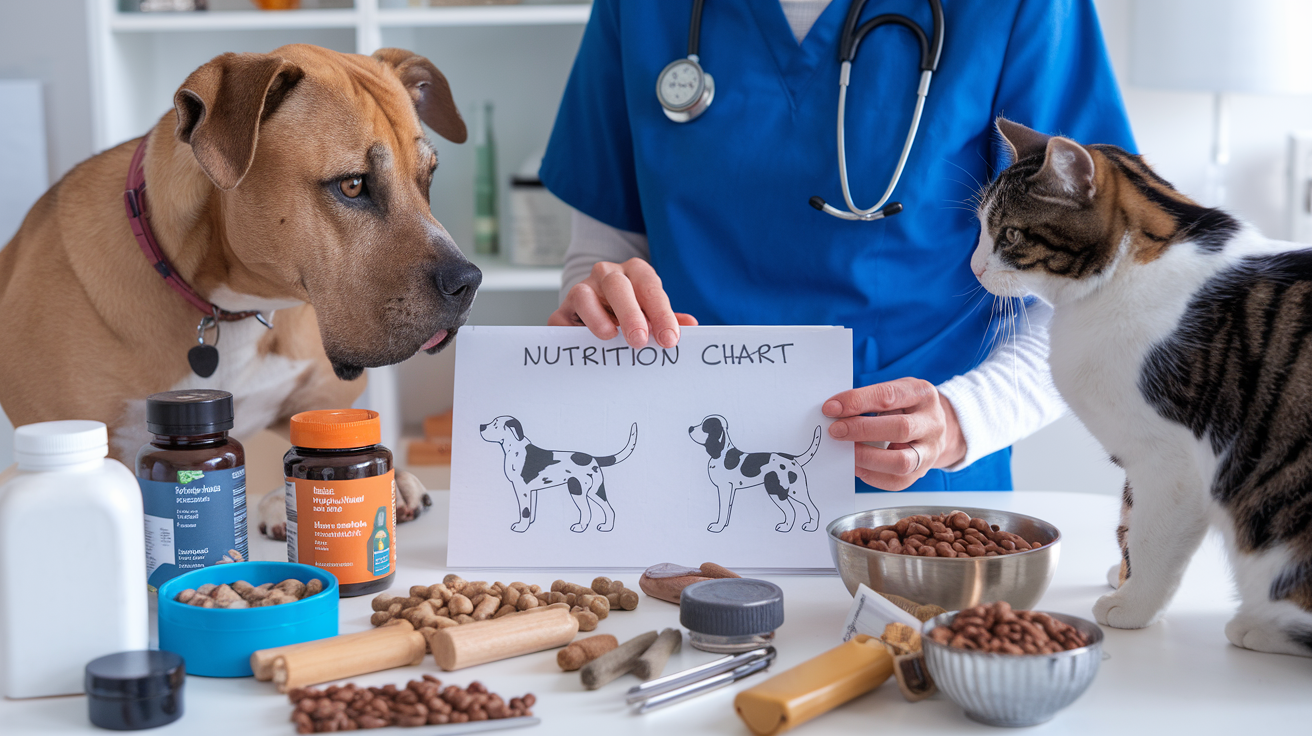Why is Maintaining a Healthy Weight Important?
Excess weight puts a strain on your pet’s body, affecting everything from their mobility to their internal organs. Common health issues associated with obesity in pets include:
- Diabetes:
Overweight pets are more likely to develop insulin resistance, leading to diabetes. - Joint and Mobility Problems:
Extra weight increases stress on joints, contributing to arthritis and reduced mobility. - Heart Disease:
Obesity can elevate blood pressure and strain the heart. - Reduced Lifespan:
Studies show that maintaining a healthy weight can extend your pet’s life by several years.
How to Determine if Your Pet is Overweight
Your veterinarian can help you assess your pet’s weight, but there are a few signs to look for:
- Ribs and Waistline:
You should be able to feel your pet’s ribs without excessive fat and see a visible waistline from above. - Difficulty Moving:
Overweight pets may struggle with climbing stairs or getting up from a resting position. - Low Energy Levels:
Excess weight can make pets lethargic and less willing to play or exercise.
If you’re unsure, ask your vet to conduct a body condition assessment for your pet.
Strategies for Maintaining a Healthy Weight
- Portion Control
- Choose Healthy Foods
- Establish a Feeding Schedule
- Incorporate Regular Exercise
- Monitor Progress
- Consult Your Veterinarian
Tips for Encouraging Activity in Pets
- Make Exercise Fun:
Choose activities your pet enjoys to keep them engaged and active. - Use Food Puzzles or Slow Feeders:
These can make mealtime more engaging and prevent overeating. - Play with Other Pets:
Social interactions with other pets can encourage physical activity.
How to Prevent Weight Gain
Preventing weight gain is easier than addressing obesity. Follow these tips to keep your pet in shape:
- Stick to recommended portion sizes.
- Limit high-calorie treats and table scraps.
- Provide plenty of opportunities for physical activity.
Conclusion
Maintaining a healthy weight for your pet is essential for their overall well-being and quality of life. By combining proper nutrition, portion control, and regular exercise, you can help your pet avoid obesity-related health issues and enjoy a happier, more active life.
If you’re concerned about your pet’s weight, consult your veterinarian for personalized advice and support. Together, you can create a plan that keeps your furry friend in tip-top shape.






